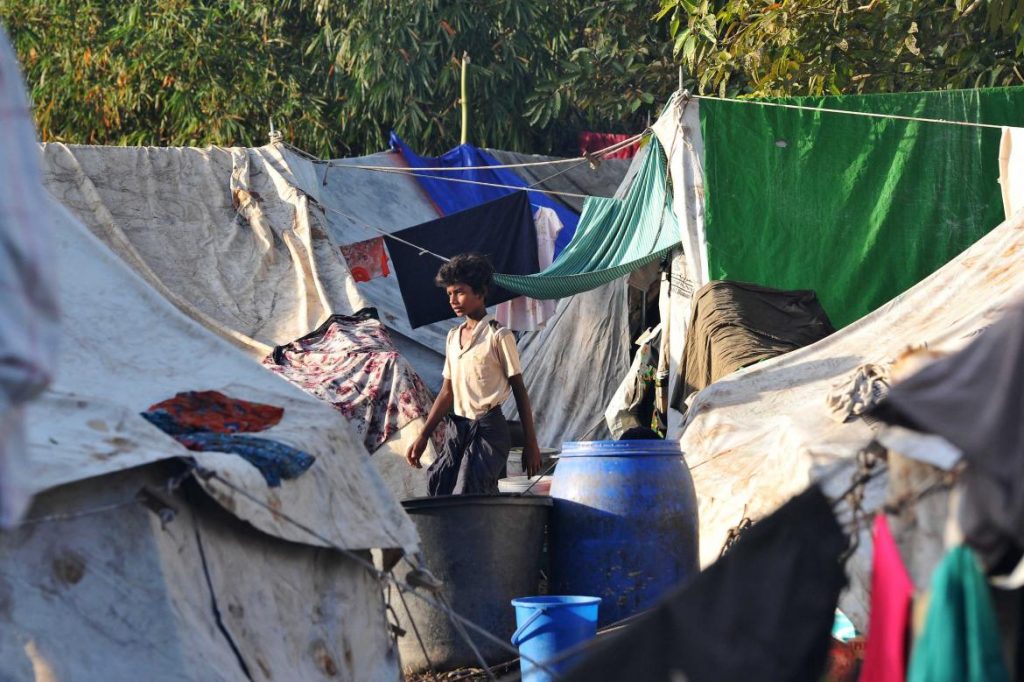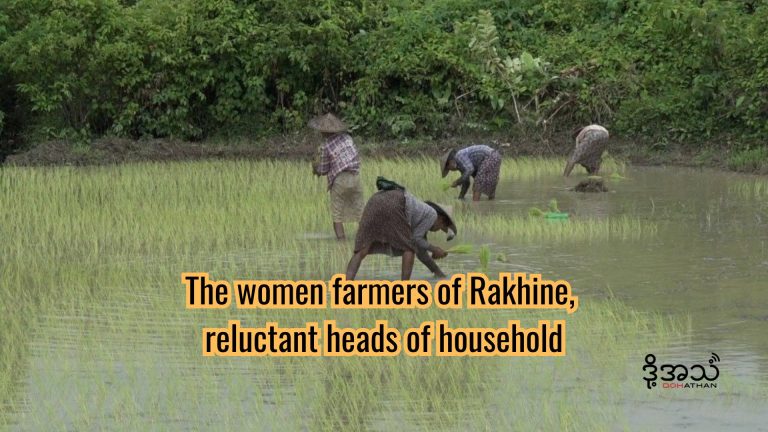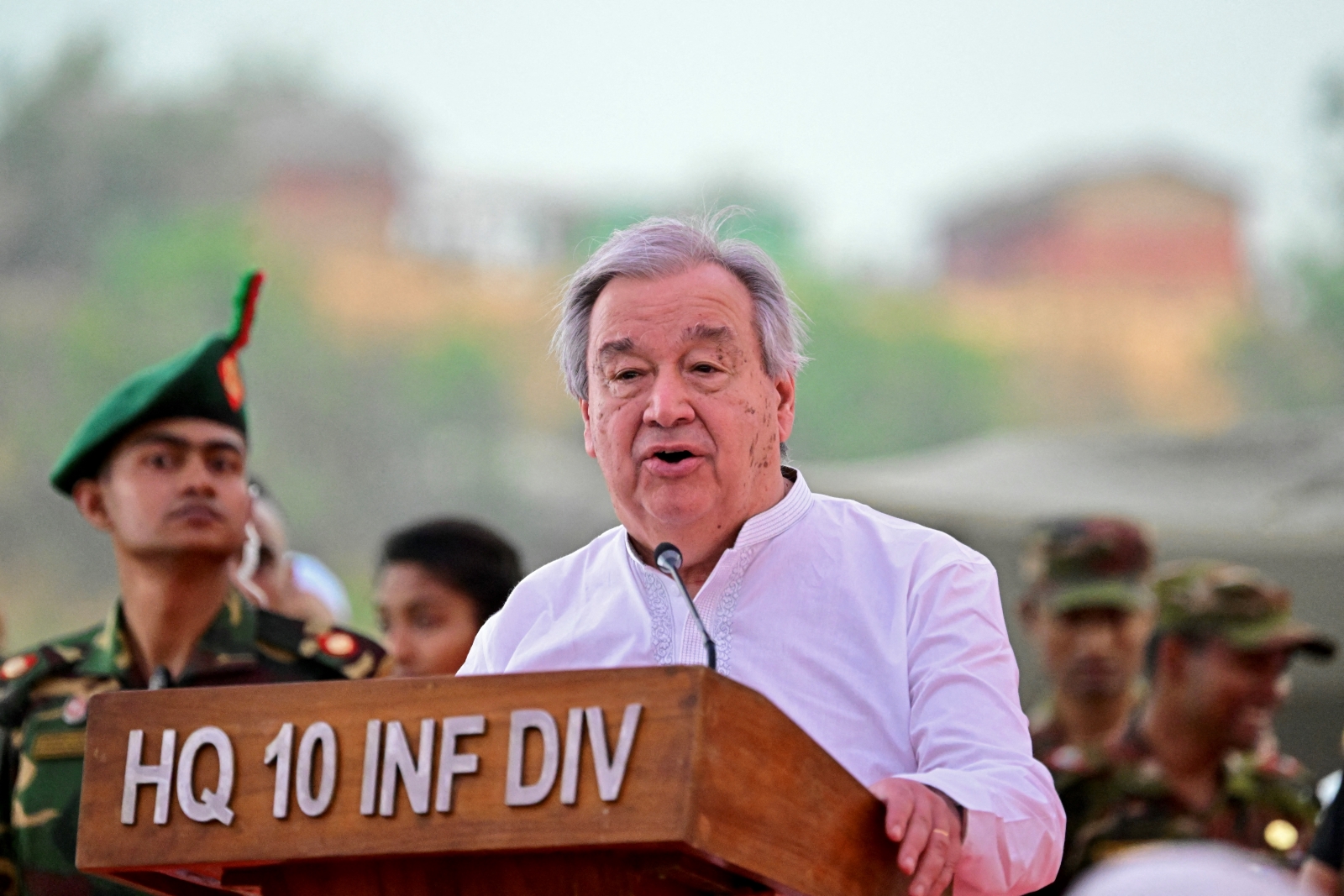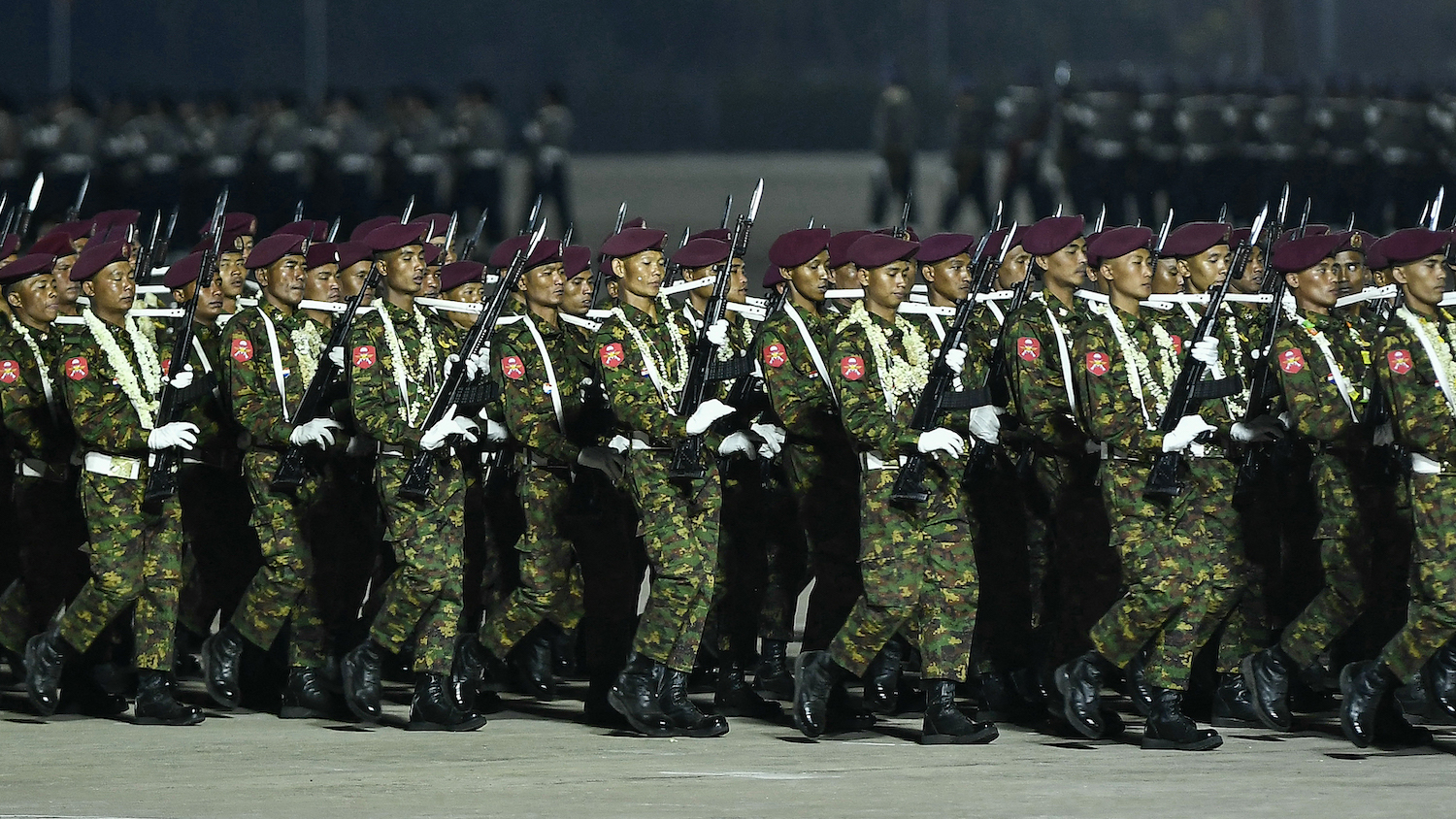About 120,000 people have languished in camps for the internally displaced in Rakhine State since 2012 and among them are hundreds of Kaman, the only Muslim group among Myanmar’s 135 officially-recognised ethnic groups.
By SU MYAT MON | FRONTIER
WHEN COMMUNAL violence engulfed Rakhine State more than five years ago, officials in Kyaukphyu Township herded hundreds of Kaman Muslims into a camp, ostensibly for their own safety.
“We were moved here when the unrest in Kyaukphyu was at its worst and told we would only be staying for a few days,” said Ko Phyu Chay, the government-appointed leader of Kyauktalone camp in Kyaukphyu town.
Since they were moved to the camp in 2012, Kaman residents have met often with union and Rakhine government ministers to ask when they can return to their homes. Phyu Chay said they have never received a clear response.
There are 1,030 Muslims among the 1,274 residents in Kyauktalone camp, and a total of about 120,000 people in IDP camps in Rakhine, showed figures released by the United Nations Office for the Coordination of Humanitarian Affairs in July last year.
Support more independent journalism like this. Sign up to be a Frontier member.
The ethnicity of the Muslims at Kyauktalone is mixed. Phyu Chay said around one-third of residents are Kaman, while Kyaukphyu Township administrator U Shwe Hla Aung said the non-Kaman Muslims are “Bengalis”, the name that the government and most Myanmar people use to describe Muslims who call themselves Rohingya.
As the only Muslim group listed among Myanmar’s 135 “national races”, the Kaman should automatically qualify for citizenship under the 1982 law. In practice, though, many have had trouble acquiring documents from the immigration department, which means that like many Rohingya – a group that is not recognised as a national race – they are unable to travel freely through Myanmar.
After years of enduring grim conditions, and with hopes fading of ever returning home, a group of Kaman decided to flee the camp late last year and make their way to Yangon.
They included Ma Khin Hnin Win, 16, and her brother Maung Zayar Htun Win, 14, whose father died in the camp two years ago. Together with four others, they fled the camp on December 27 and were arrested a day later at a checkpoint on the border between Rakhine State and Bago Region, about halfway to Yangon.
All vehicles leaving Rakhine are closely checked to ensure they are not carrying Muslims, most of whom are forbidden from travelling outside the state because they lack identity documents.
According to police, the trip was arranged with a freelance journalist, U Soe Moe Kyaw, 50, who had often visited the camp on reporting assignments. The passengers paid varying amounts totaling almost K2 million.
Soe Moe Kyaw and his six passengers have been detained at Nyaung Chay Htauk village in Bago Region’s Padaung Township. Police have charged Soe Moe Kyaw under section 367 of the penal code, for kidnapping or abduction to cause grievous hurt or for the purpose of slavery. The police said those arrested with him were “Bengalis”. They are likely to face immigration charges for crossing the state border without permission.
Phyu Chay said the passengers included Daw Su Su Htwe, 44, who holds a National Verification Card. With an NVC she is entitled to apply for a document known as Form 4, under which she can travel outside Rakhine, but he said the wait for approval is very long.
Su Su Htwe is the only member of her family who has not been granted citizenship, Phyu Chay told Frontier; her father and brother are public servants.
“She applied for citizenship in 2015 but the process has been deliberately slowed down,” said Phyu Chay.
In June 2015, the Union Solidarity and Development Party government began issuing National Verification Cards as part of a process under which holders undergo checks to determine if they are eligible for citizenship under the 1982 Citizenship Law. The NVCs replace documents known as temporary registration certificates that expired on May 31, 2015. In June 2016, the National League for Democracy government resumed issuing NVCs in Rakhine as part of a pilot project.
Up until October 2017, more than 7,000 Muslims in Rakhine had been issued with NVCs, according to the Ministry of Information. There are an estimated 1 million Muslims in Rakhine State without citizenship, though, and many have shunned the NVC programme because they are unable to apply as Rohingya and do not trust the government.
The Kyauktalone camp initially housed 1,532 people. Its current population of 1,030 people comprises 469 men and 571 women, Shwe Hla Aung, the Kyaukphyu Township administrator, told Frontier on January 10.
He said 83 hold the national identity cards issued to most citizens, 441 have NVCs, 86 hold “green cards”, a temporary document held before a person applies for the NVC, and the remaining 420 have no identity documents.
The drop in residents since 2012 is mostly because those Kaman who hold national identity cards – and are therefore able to travel – have moved out of the camp, he said.
Asked why the remaining Kaman can’t access citizenship, Shwe Hla Aung directed questions to the Immigration Department. However, the responsible official could not be reached for comment.
Shwe Hla Aung said he understood why the camp residents wanted to go home, but due to the security situation they were not allowed to live outside the camp, although they are allowed to visit the town during the day.
“I do not know when they can return home – that’s a decision for higher authorities,” Shwe Hla Aung said.
Phyu Chay said the Kaman in Kyaukphyu more closely resemble the Rakhine in language, culture, clothing and appearance.
The Kyaukphyu community tolerates the Kaman and is indifferent to their presence in the town and at its markets, he said.
“They are good to us because they are aware that we are not illegal Bengalis,” Phyu Chay said, using a widely-used term that implies all Rohingya are illegal immigrants from Bangladesh.
“I just returned from lunch with my Buddhist friend at his home,” he said.
Frustrated at government inaction, the Kaman at Kyauktalone are planning to write to the Myanmar National Human Rights Commission about their case, Phyu Chay said.
Prior to the conflict most of the Kaman had lived in the downtown area, where their homes remain intact, he added.
Some camp residents had sold their homes and some were negotiating sales. Phyu Chay said he sold his home in downtown Kyaukphyu last year for K1.1 billion (about US$818,450).
In contrast, the Rohingya Muslim community, based mostly at Paik Site village-tract east of Kyaukphyu, fled to IDP camps near Sittwe. Their homes and mosque were burned to the ground.
U Tun Ngwe, who heads the Kaman Social Network in Yangon, has helped more than 300 Kaman from Kyauktalone camp resettle in Yangon.
One of the consequences of languishing for so long in the camps, as have about 120,000 residents of other IDP camps throughout Rakhine, is that many people suffer from depression, Tun Ngwe said.
“Whoever they are, Kaman or Muslims, they deserve citizenship because they have lived here for many decades since their ancestors arrived,” he said.
TOP PHOTO: A Muslim man walks among tents at the Kyaukphyu IDP camp in November 2012. (AFP)







